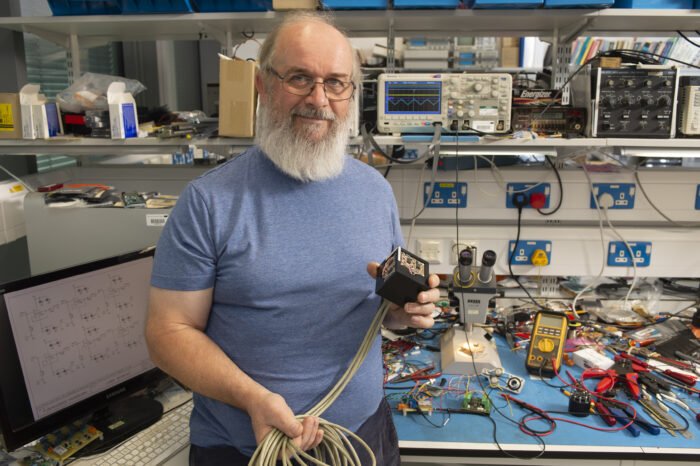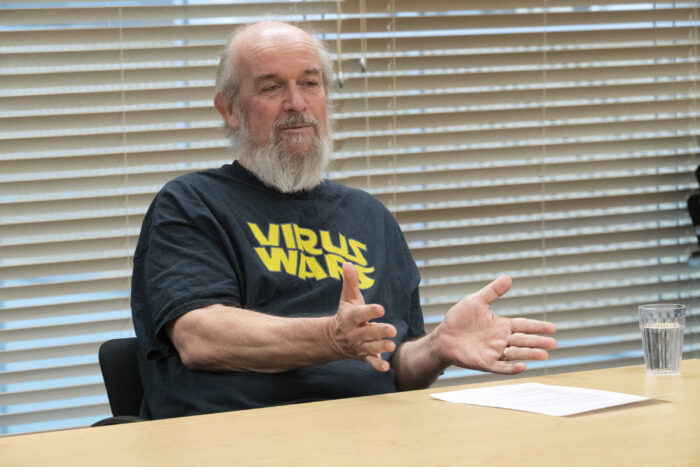
The LMB is deeply saddened to share that Martin Kyte died suddenly on 3rd November 2025. Martin, Senior Design Engineer in the Electronics Workshop, was a popular and trusted member of the LMB for over 30 years. Throughout his tenure, he contributed to hundreds of research projects, using his technical skills to push the boundaries of what was possible to create. More than this, he was always keen to discuss everyone’s research in great detail and could be relied upon to ask well-considered, probing questions.
Describing himself as a “frustrated biologist”, Martin was always passionate about science. Class scheduling conflicts prevented him from studying biology at school but he more than made up for this in his LMB career, his deep-seated curiosity leading him to acquire a wide-ranging breadth of knowledge in molecular biology.
Martin joined the LMB in 1992. His work alongside colleagues in the Electronics Workshop proves that advancements in biological study rely on pushing technology and finding new technical solutions to complex problems. Martin had a particular interest in electron cryomicroscopy (cryo-EM) and worked closely with Chris Russo, Group Leader in the LMB’s Structural Studies Division, in his efforts to improve the capabilities of cryo-EM. Martin was co-author of a 2016 paper describing a novel precision cryostat system which enabled accurate temperature control of liquid ethane for cryo-EM, improving the reliability and reproducibility of specimen vitrification. Just a few weeks ago, in October 2025, Chris published a new method of sample preparation which utilised high-speed droplet vitrification to eliminate protein damage. The method relied on a linear motor mechanism that Martin developed and a custom droplet sprayer made by the Electronics and Mechanical Workshops.
Throughout his career at the LMB, Martin was an enthusiastic volunteer for public engagement activities, where he could be relied upon to share his enthusiasm for science. Testament to the number of events and activities Martin was involved in, he could often be seen wearing the branded T-shirts created for each activity, even years later. A champion for engagement, Martin encouraged other technicians and non-scientific support staff to take part in events, explaining how he’d found that not knowing niche scientific jargon can actually be an advantage when connecting with people. He also shared his passion for his job and the alternative career paths allied to sciences with students who completed Work Experience placements within the Electronics Workshop.
Martin will be sorely missed by his colleagues and friends at the LMB.
A memorial service in Martin’s memory, open to all, will be held at Burwell Baptist Church at 12 pm on Saturday 31st January 2026, followed by refreshments at Quy Mill Hotel (Stow-cum-Quy, Cambridge). Martin’s family welcome donations to Arthur Rank Hospice and Yeldall Menor.
